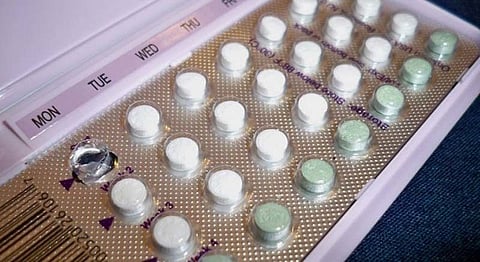
- HOMEGROWN WORLD
- #HGCREATORS
- #HGEXPLORE
- #HGVOICES
- #HGSHOP
- CAREERS
- ABOUT US
- CONTACT US

While it’s true that both men and women have contraceptive methods available to them, women have been the main targets for most of these. For women, we have the more common pill-popping whose unpredictability ranges from chemical depression, migraines and weight gain to bouts of nausea and even cyst formations for some, the more uncommon alternative would be IUDs and shots. These have become part of our daily routines, the price we must pay to avoid unwanted pregnancies via sexual liberation, perhaps. While there is a male birth control pill, it was quickly shrugged off as having ‘too many negative side effects,’ as if women never had to deal with those.
It’s a constant weighing of pros and cons when it comes to matters of contraception and methods of birth control – what we’re willing and unwilling to put our bodies through. So imagine our surprise when we learnt that in this world full of steroidal birth control pills, India happens to be the sole producer of the non-hormonal pill that is believed to have no side effects while maintaining the same level of efficiency as its counterpart.
Launched in 1991, Saheli contraceptive pill is a product of Hindustan Latex Ltd, developed by the Central Drug Research Institute (CDRI), Lucknow. Saheli contains the molecule Centchroman which instead of using estrogen to prevent pregnancy, blocks the estrogen to do the same. Marking the freedom of choice for women, Saheli is a safe and reversible contraceptive option working on the same principle as Polio drops – using an active ingredient Ormeloxifene which is a unique combination of weak estrogenic and potent anti-estrogenic inhibiting the fertilized egg from nidation, therefore, preventing pregnancy. Yet, at the same time, it does not alter or disturb the other effects of estrogen.
We posed these questions to a gynaecologist, to which she responded that while Saheli is a unique concept and is only available in our nation, we’ve failed to promote it at a commercial level. That simply, people just don’t know about it to even opt for it.
Since the government is not creating awareness about it, the doctors also hesitate to suggest it to patients who don’t know what the product is. Not only is it unknown, the fact that it was an Indian government initiative is tainting its credibility for some, who despite seeing the evidence of safety and its effectiveness, would rather pick another pill. Although it results in no harmful effects on a woman’s body, its failure rate only minutely higher than other commercial contraceptives, it has failed to steal the spotlight.
Where Saheli failed to cross the starting line in urban cities, the gynaecologist told us that it is the go-to option for women in smaller towns and villages as it is provided to them by the government. Another gynaecologist we spoke to said that doctors prescribe this pill but not as a contraceptive, instead to patients suffering from dysfunctional uterine bleeding or for people whose bodies fail to accept hormones. Even though it seems small in comparison, Saheli seems to have its own niche market.
Just like Nirodh condom (another government initiative) went through an image makeover to change its perception and reach more people in the cities, Saheli was renamed Chhaya in 2017 and that revamp did affect the sales of the pill but only in government hospitals, leaving it to still be a cosmic myth in the commercial world and medical stores.
Not only effective against conception, Saheli also reportedly was found to have anti-cancer action and is against bone desorption. A cosmic myth and a wonder drug Saheli clearly needs to be looked into as the healthier option when it comes to birth control for women. While we at Homegrown haven’t tried it as yet, we do plan on testing it out, but we do suggest you speak to your gynaecologist and inquire about the same!
Written in collaboration with Sara Hussain.
Representational feature image via The Canadian Encyclopedia.
If you liked this article we suggest you read:
